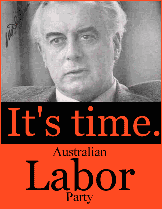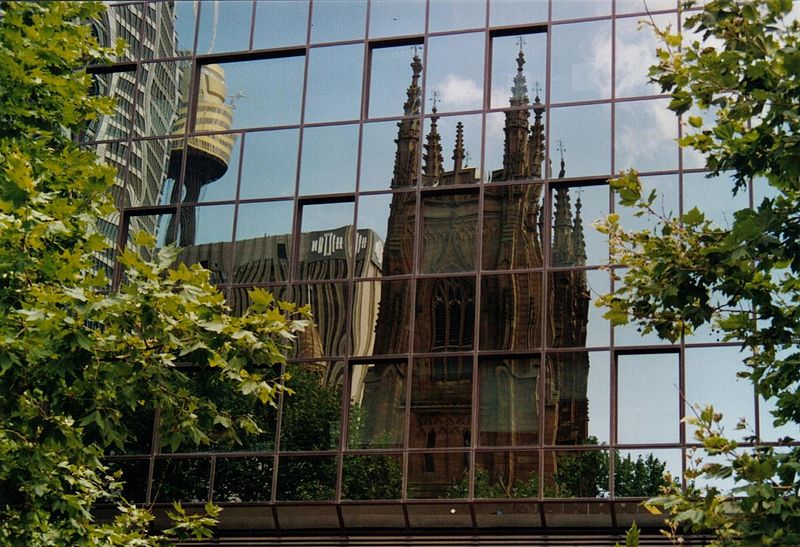My diocese is on a mission. Since 2002, our prayer has been to see 10% of the population of Sydney, Wollongong, Shoal Haven, Southern Highlands and Blue Mountains in 'Bible-believing churches' by 2012. So how are we doing? According to one estimate at Synod last year (and repeated at a talk I heard on Thursday night), in the first six years of the mission some 300 people have become Christians. Just 300 - despite all the prayer and planning and strategy. That amounts to about 1.5 people per church in the diocese. In fact, according to the figures we have, more people became Christians in the six years prior to the mission than in the first six years of the actual mission!
As a diocese, we are often proud of our strength. Our local tool of propaganda shamelessly boasts a readership of 70,000. Some of our churches are big. Not Hillsong big, or American mega-church big. But compared to many of mainline protestant churches in Australia, the Sydney Diocese is quite strong. Actually, comparing ourselves to the other Anglican dioceses throughout the country is one of our favourite games to play in Sydney. It shows how good we are - which is quite pathetic really, given that many of these dioceses are breathing their last gasps of air.
Why haven't we grown? Why aren't our churches full? Maybe Sydney is just too hard - we scatter the seed and it gets eaten up straight away. Maybe. That certainly makes it easier to spiritualize our lack of growth. 'God isn't working here for some reason, so we'll keep on doing the same thing we've always done and wait for things to change'. As a diocese we really only have one strategy for growth - church planting. Multiplying congregations is one of the goals of the mission, and scores upon scores of new churches have been started since 2002. The problem is that we spend all our time and energy producing church services that are essentially the same as the church up the road or in the morning. Even more so, constant church planting is a tiresome and exhaustive business that wears down our church members so much that they have no time to do anything else - even "connecting" to their neighbours.
According to a rector of a large church that I was talking to on Friday night, maybe the problem is that we have grieved the Holy Spirit. In our local evangelical culture we are quite wary of the Holy Spirit. Our foci's lies in completely different places, so much so that during the Connect 09 Big Day In the prayer before the sermon was for the archbishop to enlighten our hearts as to the meaning of Jonah. I have great respect and admiration for our archbishop, but the last time I checked, this was meant to be the work of the Spirit (working through Peter) and not the Archbishop himself.
Maybe we're scared of the Holy Spirit, not just because of pentecostals, but because our lives reflect to closely the lives of the city around us (I see this in my own life). We're proud and arrogant, we love stirring up controversy and arguments. Our tongues are full of bitterness and slander, and we like to gossip. We like promoting ourselves at the expense of others, and we enjoy our comforts so much that any sacrifice we might need to make, no matter how small, is to big a deal for us to cope with.
Instead, following Paul:
"(H)aving put away falsehood, let each one of you speak the truth with his neighbor, for we are members one of another. Be angry and do not sin; do not let the sun go down on your anger, and give no opportunity to the devil. Let the thief no longer steal, but rather let him labor, doing honest work with his own hands, so that he may have something to share with anyone in need. Let no corrupting talk come out of your mouths, but only such as is good for building up, as fits the occasion, that it may give grace to those who hear. And do not grieve the Holy Spirit of God, by whom you were sealed for the day of redemption. Let all bitterness and wrath and anger and clamor and slander be put away from you, along with all malice. Be kind to one another, tenderhearted, forgiving one another, as God in Christ forgave you."
Ephesians 4.25-32
The Lord have mercy on us.







